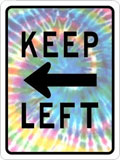Ah, the online world of the internets. A place of unspeakable and (almost) unimaginable evil.
It’s a land where 14-year-old children use the latest and greatest state-of-the-art technology to play mind games in the hopes their contemporaries will – quite literally – kill themselves. It quickly goes downhill from there.
Need a place to post your latest rape video? Check. The internet has got your back.
I’m deliberately leaving out the really nasty stuff. In short, technology lead to a life of ease with record leisure time which we promptly filled up with shitty behavior towards each other. Welcome to the Shit Age, the unpredicted successor to the Information Age.
On the bright side, though, there can be positive, fun moments, too. Like when you create your online persona, upload a real picture of yourself, then some stranger says, “Holy fuck, you are one hot bitch!” and emails you a picture of his penis. (Or so I’ve heard. I’ve never personally experienced that form of an internet “compliment.”)
Ah, internet. I see what you did there. You even ruined the so-called nice stuff. Well played.
In a place like this, a compliment on your avatar might seem like a refreshing change of pace. It might feel like a beacon of light in a sewer-sludge trash compactor of darkness and evil.
But is it really?
What is a compliment? The dictionary says it is “a polite expression of praise or admiration.”
Ah. It’s supposed to be polite. Therein lies a potential rub.
Is MILF a compliment? It might be true, from the speaker’s point of view, but it’s not very polite. In theory, it could be a compliment in the right context. But if that context isn’t there, it’s just plain rude. Thus, no compliments given.
So we have “context” added to the mix. A compliment must be polite and it must be appropriate to the context.
Say you are in a professional meeting of some sort. Person A says, “Here’s the data which we interpret to mean XYZ.” Person B replies, “You are so good looking.”
What went wrong? The observation from Person B had nothing to do with the data, the point being made or even the interpretation. It was completely irrelevant. It’s worse than a logic fallacy because it reduces the entire exercise down to the point of the physical beauty of one of the participants. It’s a way of saying, “You offer nothing of value here except for your appearance and, quite possibly, your performance as a sex partner. Booyah!”
A scenario similar to this actually happened in a public setting with a politician here in Portland, Oregon.
Baruti Artharee—policy director for Mayor Charlie Hales—introduced Multnomah County Commissioner Loretta Smith to a crowd like this: “Here’s our beautiful commissioner, Loretta Smith—mmm, mmm, mmm—she looks good tonight.”
Source: PortlandMercury.com – Object Lessons: On Sexual Harassment and Loretta Smith
Mr. Artharee was suspended then resigned a few months later, of course claiming it had nothing to do with the controversy. Ever notice how people resigning right after the shit goes sideways always say things like that?
Logically speaking, making things personal is one of the many forms of logically fallacies that exist. Comments like, “Bob, you are stupid” don’t add anything substantive to discussion. They don’t prove or disprove any arguments or facts.
https://twitter.com/shoutabyss/status/370239573684531200
The internet empowers us to say whatever we think. We feel if we have a thought then it must always be required to share it. Cogito ergo oratio. We do not willingly censor ourselves on the internet. If it feels good tweet it. But, if you act differently towards someone on the internet than you would to their face you are an asshat.
Although they’re seemingly positive, appearance compliments clearly fall under the umbrella of objectifying behaviors. When people reduce women to sex objects, appearance commentary – both positive (if they’re hot) and negative (if they’re not) – often emerges.
Yet, context is everything. Sexual objectification occurs when one’s appearance is regarded as capable of representing the entire person.
Source: Psychology Today – When Are Appearance Compliments Objectifying Insults?
Anyway, if I’ve never complimented you or put you down based on the appearance of your avatar, perhaps now you know why. I think it’s rude.






















Glad to hear my avatar leaves you speechless!
Age and experience have taught me that it’s always best to think about what I’m saying, regardless of the medium it’s said in.
LikeLike
I think that folks who say things like “I hope you get brain cancer!” haven’t acquired the age and/or experience yet.
I think your avatar is gnarly.
LikeLike
With Penny as my avatar, I KNOW I’m a great looking bitch.
LikeLike
What do you have to say for all those profiles on FB that just have pictures of one girl (or sometimes multiple) all naked and all deprived? I’m not talking about a “Hotties” group but an actual personal profile with someone’s name (perhaps fictitious) and about a hundred dudefollowers and a billion comments on every picture along the lines of “tit hot, lik t suk d tit” as if they’re typed with face while men doublehand wank… Who makes those profiles? To what end? Perhaps a genuinely attractive girl who happens to be a lewd internet comment fetishist?… or maybe just a lonely, old bloke who likes to imagine they’re actually complimenting his mammary glands… please, clarity.
LikeLike
It was never going to end in any other way but ‘The Shit Age’… Is it too late to say “end”? Probably not…
LikeLike
*too early to say “end” rather…
LikeLike